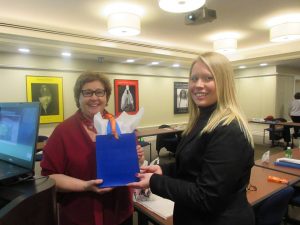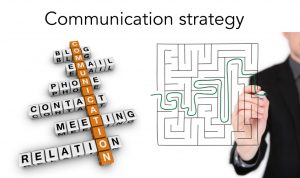
I’m done! I’m finished!
That is, I just graduated with my Master’s of Communications Management from Syracuse University. After a challenging two-and-a-half years, I can finally claim my own little blue bag.
How is entrepreneurship evolving?
Before I could get to this point, though, I had to complete a final capstone. After several studies in multicultural communications, social media and entrepreneurship, I combined these three concepts to create a case study in the global and social evolution of the practice.
This case study investigated how expatriate and location-agnostic entrepreneurs used multicultural communications and social media strategies through the use of disruptive business models, specifically comparing social media, multicultural communications and entrepreneurship theories to real-world activities. A variety of factors, such as international moves for partners, the U.S. financial crisis of 2008 and expanding global influences, led the entrepreneurs to their decisions of becoming expats or location-agnostic. An ethnographic embedded multiple-case design with multiple units of analysis of social media and multicultural communications tactics in various business models was used, based on six in-depth interviews with expat and location-agnostic entrepreneurs, documentation of the entrepreneurs’ social media platforms, and 12 hours of participant observation of entrepreneur networking groups in Zürich, Switzerland. This study reported the reasons why the entrepreneurs pursued their expat and location-agnostic business models and how they incorporated social media and multicultural communications strategies into these new business models. It concluded that some communications theories applied to these business models matched and explained the actions of the entrepreneurs while others failed to do so with one possible rival explanation.
I gave the following presentation Jan. 6 in New York City to a Syracuse University audience to complete the final requirement for my master’s degree.
What is your take on entrepreneurship?
Do you see changes in entrepreneurship? How have you evolved in your business? Let me know your thoughts on this emerging concept.



